#control boards
Text
Insurance companies are making climate risk worse
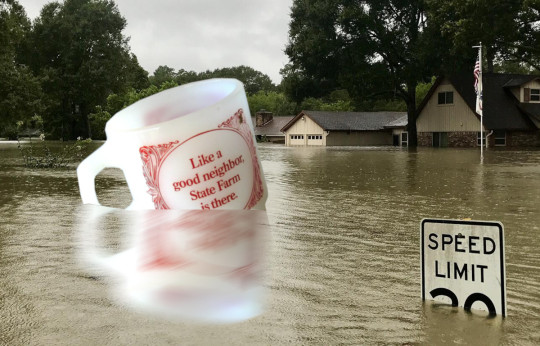
Tomorrow (November 29), I'm at NYC's Strand Books with my novel The Lost Cause, a solarpunk tale of hope and danger that Rebecca Solnit called "completely delightful."

Conservatives may deride the "reality-based community" as a drag on progress and commercial expansion, but even the most noxious pump-and-dump capitalism is supposed to remain tethered to reality by two unbreakable fetters: auditing and insurance:
https://en.wikipedia.org/wiki/Reality-based_community
No matter how much you value profit over ethics or human thriving, you still need honest books – even if you never show those books to the taxman or the marks. Even an outright scammer needs to know what's coming in and what's going out so they don't get caught in a liquidity trap (that is, "broke"), or overleveraged ("broke," again) exposed to market changes (you guessed it: "broke").
Unfortunately for capitalism, auditing is on its deathbed. The market is sewn up by the wildly corrupt and conflicted Big Four accounting firms that are the very definition of too big to fail/too big to jail. They keep cooking books on behalf of management to the detriment of investors. These double-entry fabrications conceal rot in giant, structurally important firms until they implode spectacularly and suddenly, leaving workers, suppliers, customers and investors in a state of utter higgeldy-piggeldy:
https://pluralistic.net/2022/11/29/great-andersens-ghost/#mene-mene-bezzle
In helping corporations defraud institutional investors, auditors are facilitating mass scale millionaire-on-billionaire violence, and while that may seem like the kind of fight where you're happy to see either party lose, there are inevitably a lot of noncombatants in the blast radius. Since the Enron collapse, the entire accounting sector has turned to quicksand, which is a big deal, given that it's what industrial capitalism's foundations are anchored to. There's a reason my last novel was a thriller about forensic accounting and Big Tech:
https://us.macmillan.com/books/9781250865847/red-team-blues
But accounting isn't the only bedrock that's been reduced to slurry here in capitalism's end-times. The insurance sector is meant to be an unshakably rational enterprise, imposing discipline on the rest of the economy. Sure, your company can do something stupid and reckless, but the insurance bill will be stonking, sufficient to consume the expected additional profits.
But the crash of 2008 made it clear that the largest insurance companies in the world were capable of the same wishful thinking, motivated reasoning, and short-termism that they were supposed to prevent in every other business. Without AIG – one of the largest insurers in the world – there would have been no Great Financial Crisis. The company knowingly underwrote hundreds of billions of dollars in junk bonds dressed up as AAA debt, and required a $180b bailout.
Still, many of us have nursed an ember of hope that the insurance sector would spur Big Finance and its pocket governments into taking the climate emergency seriously. When rising seas and wildfires and zoonotic plagues and famines and rolling refugee crises make cities, businesses, and homes uninsurable risks, then insurers will stop writing policies and the doom will become undeniable. Money talks, bullshit walks.
But while insurers have begun to withdraw from the most climate-endangered places (or crank up premiums), the net effect is to decrease climate resilience and increase risk, creating a "climate risk doom loop" that Advait Arun lays out brilliantly for Phenomenal World:
https://www.phenomenalworld.org/analysis/the-doom-loop/
Part of the problem is political: as people move into high-risk areas (flood-prone coastal cities, fire-threatened urban-wildlife interfaces), politicians are pulling out all the stops to keep insurers from disinvesting in these high-risk zones. They're loosening insurance regs, subsidizing policies, and imposing "disaster risk fees" on everyone in the region.
But the insurance companies themselves are simply not responding aggressively enough to the rising risk. Climate risk is correlated, after all: when everyone in a region is at flood risk, then everyone will be making a claim on the insurance company when the waters come. The insurance trick of spreading risk only works if the risks to everyone in that spread aren't correlated.
Perversely, insurance companies are heavily invested in fossil fuel companies, these being reliable money-spinners where an insurer can park and grow your premiums, on the assumption that most of the people in the risk pool won't file claims at the same time. But those same fossil-fuel assets produce the very correlated risk that could bring down the whole system.
The system is in trouble. US claims from "natural disasters" are topping $100b/year – up from $4.6b in 2000. Home insurance premiums are up (21%!), but it's not enough, especially in drowning Florida and Texas (which is also both roasting and freezing):
https://grist.org/economics/as-climate-risks-mount-the-insurance-safety-net-is-collapsing/
Insurers who put premiums up to cover this new risk run into a paradox: the higher premiums get, the more risk-tolerant customers get. When flood insurance is cheap, lots of homeowners will stump up for it and create a big, uncorrelated risk-pool. When premiums skyrocket, the only people who buy flood policies are homeowners who are dead certain their house is gonna get flooded out and soon. Now you have a risk pool consisting solely of highly correlated, high risk homes. The technical term for this in the insurance trade is: "bad."
But it gets worse: people who decide not to buy policies as prices go up may be doing their own "motivated reasoning" and "mispricing their risk." That is, they may decide, "If I can't afford to move, and I can't afford to sell my house because it's in a flood-zone, and I can't afford insurance, I guess that means I'm going to live here and be uninsured and hope for the best."
This is also bad. The amount of uninsured losses from US climate disaster "dwarfs" insured losses:
https://www.reuters.com/business/environment/hurricanes-floods-bring-120-billion-insurance-losses-2022-2023-01-09/
Here's the doom-loop in a nutshell:
As carbon emissions continue to accumulate, more people are put at risk of climate disaster, while the damages from those disasters intensifies. Vulnerability will drive disinvestment, which in turn exacerbates vulnerability.
Also: the browner and poorer you are, the worse you have it: you are impacted "first and worst":
https://www.climaterealityproject.org/frontline-fenceline-communities
As Arun writes, "Tinkering with insurance markets will not solve their real issues—we must patch the gaping holes in the financial system itself." We have to end the loop that sees the poorest places least insured, and the loss of insurance leading to abandonment by people with money and agency, which zeroes out the budget for climate remediation and resiliency where it is most needed.
The insurance sector is part of the finance industry, and it is disinvesting in climate-endagered places and instead doubling down on its bets on fossil fuels. We can't rely on the insurance sector to discipline other industries by generating "price signals" about the true underlying climate risk. And insurance doesn't just invest in fossil fuels – they're also a major buyer of municipal and state bonds, which means they're part of the "bond vigilante" investors whose decisions constrain the ability of cities to raise and spend money for climate remediation.
When American cities, territories and regions can't float bonds, they historically get taken over and handed to an unelected "control board" who represents distant creditors, not citizens. This is especially true when the people who live in those places are Black or brown – think Puerto Rico or Detroit or Flint. These control board administrators make creditors whole by tearing the people apart.
This is the real doom loop: insurers pull out of poor places threatened by climate disasters. They invest in the fossil fuels that worsen those disasters. They join with bond vigilantes to force disinvestment from infrastructure maintenance and resiliency in those places. Then, the next climate disaster creates more uninsured losses. Lather, rinse, repeat.
Finance and insurance are betting heavily on climate risk modeling – not to avert this crisis, but to ensure that their finances remain intact though it. What's more, it won't work. As climate effects get bigger, they get less predictable – and harder to avoid. The point of insurance is spreading risk, not reducing it. We shouldn't and can't rely on insurance creating price-signals to reduce our climate risk.
But the climate doom-loop can be put in reverse – not by market spending, but by public spending. As Arun writes, we need to create "a global investment architecture that is safe for spending":
https://tanjasail.wordpress.com/2023/10/06/a-world-safe-for-spending/
Public investment in emissions reduction and resiliency can offset climate risk, by reducing future global warming and by making places better prepared to endure the weather and other events that are locked in by past emissions. A just transition will "loosen liquidity constraints on investment in communities made vulnerable by the financial system."
Austerity is a bad investment strategy. Failure to maintain and improve infrastructure doesn't just shift costs into the future, it increases those costs far in excess of any rational discount based on the time value of money. Public institutions should discipline markets, not the other way around. Don't give Wall Street a veto over our climate spending. A National Investment Authority could subordinate markets to human thriving:
https://democracyjournal.org/arguments/industrial-policy-requires-public-not-just-private-equity/
Insurance need not be pitted against human survival. Saving the cities and regions whose bonds are held by insurance companies is good for those companies: "Breaking the climate risk doom loop is the best disaster insurance policy money can buy."
I found Arun's work to be especially bracing because of the book I'm touring now, The Lost Cause, a solarpunk novel set in a world in which vast public investment is being made to address the climate emergency that is everywhere and all at once:
https://us.macmillan.com/books/9781250865939/the-lost-cause
There is something profoundly hopeful about the belief that we can do something about these foreseeable disasters – rather than remaining frozen in place until the disaster is upon us and it's too late. As Rebecca Solnit says, inhabiting this place in your imagination is "Completely delightful. Neither utopian nor dystopian, it portrays life in SoCal in a future woven from our successes (Green New Deal!), failures (climate chaos anyway), and unresolved conflicts (old MAGA dudes). I loved it."

If you'd like an essay-formatted version of this post to read or share, here's a link to it on pluralistic.net, my surveillance-free, ad-free, tracker-free blog:
https://pluralistic.net/2023/11/28/re-re-reinsurance/#useless-price-signals
#pluralistic#doom loop#insurance#insuretech#climate#climate risk#climate emergency#the lost cause#market forces#risk management#price signals#control boards#decarbonization#bond vigilantes#climate resilience
262 notes
·
View notes
Text

Discover top-tier commercial design build solutions in Lancaster with Lancasters Electrical. Our expert team brings unrivaled expertise to transform your business space. Elevate productivity and aesthetics with our innovative designs. Get started on your next project today!
0 notes
Text
Lady Danielle Gotham, nee Phantom
Danny is the Reluctant King Phantom, Essence of Duality, Bringer of Balance, Protector of the Innocent, Victorious Over Plant and Weather Alike, etc. etc.
Dan(te) is the Prince, Cautioning Message, Promonition of Destruction, Wrathful Truth, Experienced Overlord and Conquest, Obsessions Deprived Newly Reborn, etc. etc.
Dani(elle/Ellie) is the Wandering Princess, Widespread Sights, Mirror Turned Painting, and now, most recently, Lady Gotham.
Let's explain.
Ellie has wandered much of their home dimension by now, and even with the Infinite Realms, wants to see an alternate Earth. Clockwork, the doting Grandpa he is, agrees, opening a portal. He says that she can do anything she wants, as long as she doesn't outright obliterate that version. The rest of them see her off, and in she goes.
The first thing she sees is a grave. Though she can't read it, as a woman in black could've been white, so long ago stands in front of it. The woman turns around, and she is
beautiful, shattered, solemn, joyful, mourning, celebrating, ominous, comforting, barely a newly minted town, an old weathered city, and
Tired. So tired. So much has happened, good and bad. She wants to watch her knights grow, to see them flourish. But even a sentient city cannot stay. Too much has changed from before. Too many magics. She has decks of curses, played or kept in her hand, but it is too much. She must reform.
Ellie is approached, and they talk. She's exploring, and this place seems really nice. A bit morbid, perhaps, but nice. Lady Gotham sees potential.
Over a few months they talk, and Lady Gotham gives not only the title, but the very essence of her beloved city to Ellie. She may not reform, and be dispersed. Or she will. But she wants someone to look after it. And Ellie can do that. She's seen so many people and places, understands how complicated it can be, and has a good relationship to the Reluctant King.
Ellie accepts. She's sad to see Lady Gotham go, but knows that nothing can forever. So she decides to check up on Lady Gotham's (who she now is) knights. And those two guys in the sewers. And the other with the bar and birds. And that woman in the catsuit and the assassin one too. All of them, actually. Invisibly, of course. Wouldn't want to do anything stupid.
She also got a cool new outfit! (Created by the essence of Gotham and herself, not that she knows that.) It feels so natural to have it on as she watches. The people she's watching, on the other hand, can feel it. The city's gaze.
Ellie has opinions. I mean, look at Mister Riding Hood! Dirtiest 'plasm she's seen! And the Bat! So many kids! Sewer dudes are actually pretty cool. Fun to hang out with. She's taken to using TVs supplied by Technus and Tucker that she's fed some ecto-essence into to let her watch them. And she's also had small picnics with some of the spirits residing there.
One day, as she's "birdwatching", or just going about her business, they see her. She doesn't notice.
#dp x dc#dc x dp#dp x dc crossover#dpxdc#dp x dc prompt#dani is lady gotham#Oh yeah we're goin there#good parents jack and maddie#Yeah the angst and all that#But Jack would be physically unable to hurt Danny#The moment he learns he's Phantom#Maddie would be so sorry.#She'd make up for it by working with Jack to fix the security systems and give Danny some new gear that works with his ghostliness.#danielle phantom#dan phantom#jazz fenton#Though she is not appearing as of yet.#redeemed vlad#Clockwork Vlad Jack and Maddie all come together once a month at the very least.#What they do can range from talking over board games to eldeutch horror pest control.#Ellie does play around with the deck of curses as a sort of stimming.#This does come back to bite her.#Continuations are very much appreciated.#batfam#danny phantom
346 notes
·
View notes
Text


“Don’t want the Board to watch,” Darling explains, not without an edge of embarrassment. “I mean, can you imagine if this --” he gestures to the small space between them-- “showed up on their minutes? I’d be-- mortified , is the word.”
Trench stares at him. It takes him a moment to find the coherency to respond.
“I’m sure,” he manages to say, “they wouldn’t mind extracurricular activities.”
a scene from my trench/darling fic, "minutes of the meeting" <3 i may not have finished the game yet but i am utterly enamored with darling and trench's dynamic of the bureau's golden child and his handler υ´• ﻌ •`υ
#control#control game#casper darling#dr darling#dr casper darling#zachariah trench#trench/darling#darling/trench#illustration#digital art#artists on tumblr#mine#my art#the board voice my god these bitches gay/faggy. good for them. good for them#HELP#im never beatign the allegations#'where r darlings glasses' READ THE FIC#THANK U#like comment subscribe marinate overnight and bake at 350F#let cool for 10 minutes#serve with garnish
247 notes
·
View notes
Text

The Board (Control)
acrylic on canvas
433 notes
·
View notes
Text
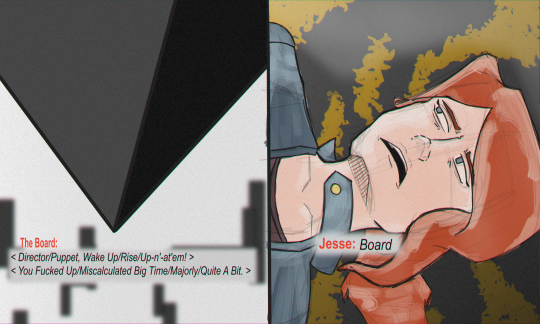
this was mildly funnier in my head
#it's the “tails wake up! you fucked up big time” meme btw#just in case it's secretly super niche#which i doubt but i've heard three different people say they've never seen that meme so#i felt the need to add context#btw when i say 'mildly funnier' i mean i was actively giggling while drawing it#jesse faden#jesse faden control#jesse control#control 2019#control remedy#remedy control#remedy entertainment#the board#board#the board control#federal bureau of control#control fanart#fanart#meme#control meme#i've not drawn literally anything since like early october#i'm super rusty and did not trust myself to make anything serious#so i just had fun#gotta work my way back up to my normal level of comfort and then continue trying to improve#it's a process yknow?
380 notes
·
View notes
Text
imagine being director Northmoor of the FBC and one day you revel so much in your power that you literally explode. and instead of doing anything else about it, the FBC goes “when life gives a secret paranatural government agency lemons…” and throws your possibly-alive, moving corpse in a power plant so they don’t have to worry about their power bill. then going onwards, people only refer back to you using ominous light-based puns
#that guy was the worst lmao#like so far it seems every director that’s had a connection to the board has met a fate that reflected their person#northmoor was explosive and power hungry and awful. and therefore is forever burning as a fuel source for everyone#but it’s just funny to try to imagine what the hell went down with him. wasn’t trench the one who brought up the idea 😭#control remedy#control 2019#Northmoor#this is always the first ‘secret thing about control!’ on any article or thread#but is really is fun to figure out#this and the book club reviews reflecting the writers deaths in the game#fbc agent painting Northmoor sarcophagus container on the side of the power plant: this is genius
122 notes
·
View notes
Text
it is so extremely underutilized that Nico is heavily implied to have powers of just. anything ghosts are reportedly able to do.
we know canonically that he can drop temperatures to freezing/to the point where it creates frost, and does so involuntarily or unknowingly at times. We know he can project emotions and memories out onto others, just in general and with physical force - both his own memories/emotions and general emotions as well, such as radiating an aura onto his enemies so that they would fear him more. We know it's heavily implied he can straight up create illusions and inflict madness upon others. We know he's eerily silent when he moves and seems to just appear in places. We know he can control/walk through/mess with dreams. We know he can become intangible and pass through solid objects and terrain without even realizing it.
like, that alone is so much! but the fact that it's implied that's not it? there's MORE?
Where's Nico fucking with EVPs and speaking through radios or static or TV. Throwing his voice. Nico remotely setting things on and off, or draining batteries, or making cell service fuzz out. Nico totally turning invisible (also a Hades' Helm of Darkness thing, so double reason for Nico to be able to do that). Where's Nico inflicting sleep paralysis. Where's Nico straight up making the walls bleed. Let him do more ghost stuff!
#pjo#riordanverse#nico di angelo#headcanon#headcanons#he's a dramatic lil shit and you know he loves fucking with people#i demand more content of Nico doing movie-level haunting/demon-possession stuff Just Because He Can#just him going ''oh haha yeah i can float ominously but like. only stationary and in whatever would scare/frighten you the most''#''not very practical but hilarious when you wake up at 3am and i'm on your ceiling''#nico scratching his friends from an entirely different room but like. the way cats do when they want attention#the argo II crew looking like they live in a horror movie because Nico got lonely#the gang walks into the common room of the Argo II to find the blood scrawled on the walls#but it just says ''WE'RE OUT OF PAPER TOWELS''#they ask what he wants for dinner and turn on the TV between channels and he just tells them his fast food order through the static#nico knocking cups off of counters just to fuck with people#nico remotely controlling a ouijia board but he's just spelling out swears
209 notes
·
View notes
Text
Prompt:
Titans Tower Au!
Tim is showing a starstruck Bernard around the Tower when the Red Hood breaks in.
Jason doesn’t know what happened, but there’s a civilian kid charging at him just when he was about to get to the good bit and clip the Replacement’s wings, screaming and crying to stop hurting Robin.
He’s never been so confused in his whole damn life.
#Jason todd#catapulted out of pit rage by the power of young love#jason these-are-now-my-children Todd#Tim hide-and-do-not-make-a-peep-bernard Drake#bernard i-will-totally-attack-red-hood-with-a-spoon Dowd#bernard ready to die for his bf#Tim is totally NOT on board with that plan#Jason switches for violence to victim comfort in a split second#he’s taking them both back to crime alley#titans tower au#bernard keeps trying to vivisect him#Jason thinks he might come to like the kid#Tim drake terrified this is a hostage situation where his bf is leverage#Jason trying and failing to do damage control#Tim drake#bernard dowd#red hood#Robin#hero worship#batfamily#identity shenanigans#enemy to caretaker#accidental child acquisition#prompts#Timbers#tim x bernard
157 notes
·
View notes
Text
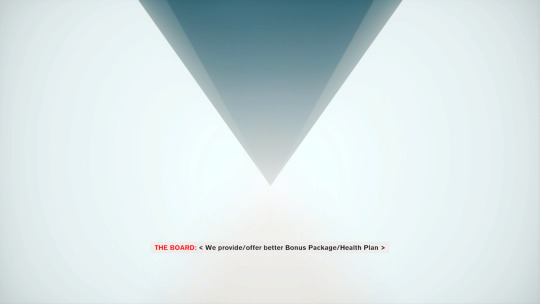
The Board's dialogue continues to make me laugh.
84 notes
·
View notes
Text

#me expressing affection#remedy control#control: the board#control quotes#videogames#horror games#remedy entertainment#quotes#videogames quotes#control#favorite quotes
284 notes
·
View notes
Text
Hey.
Kim teaching Harry how to skateboard and Harry teaching Kim how to roller skate.
Harry thinks he fucking sucks at first because Kim gets the hang of roller skating pretty quickly. As it turns out, skateboarding is a lot harder than roller skating.
I don’t know where I’m going with this. Um. Kim still prefers skateboarding because of the technical aspect and risk factor but he’s surprised he enjoys how chill roller skating is.
Harry enjoys skateboarding because a) time with Kim as a teacher and b) oh wow a challenge? Your physical instrument loves challenges. You will conquer this with the force of your—what do you mean this is more the centipede’s thing? Holy shit no wonder Kim’s so cool
#disco elysium#harry du bois#kim kitsuragi#anyway I got a cheap Walmart skateboard yesterday and I’m a little bit taken in right now#practiced just getting on the board and pushing forward for like 30 minutes and ended up sweating#confused at first before I remembered…#you know how you get super fucking tired after a long day of travel in the car or on the train and stuff#it’s because your body is always making micro adjustments to keep you in place#and skateboarding? it’s all about body control baby#skateboarding is hard man#be cool to have a custom made Dolores dei skateboard though imo
82 notes
·
View notes
Text

Went and did some Control art

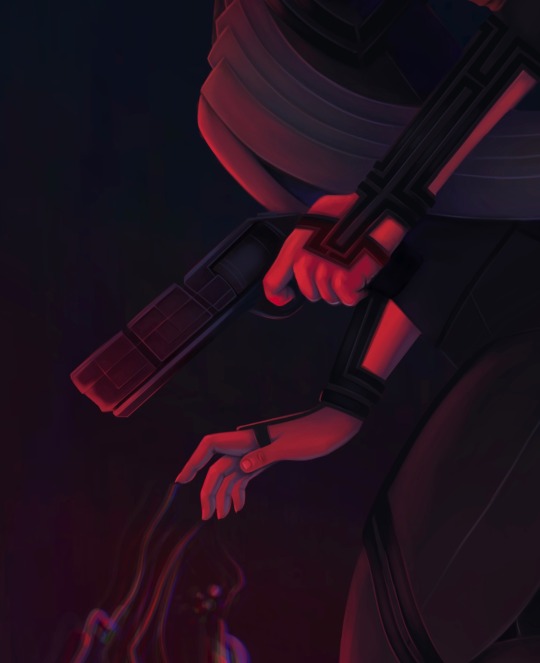
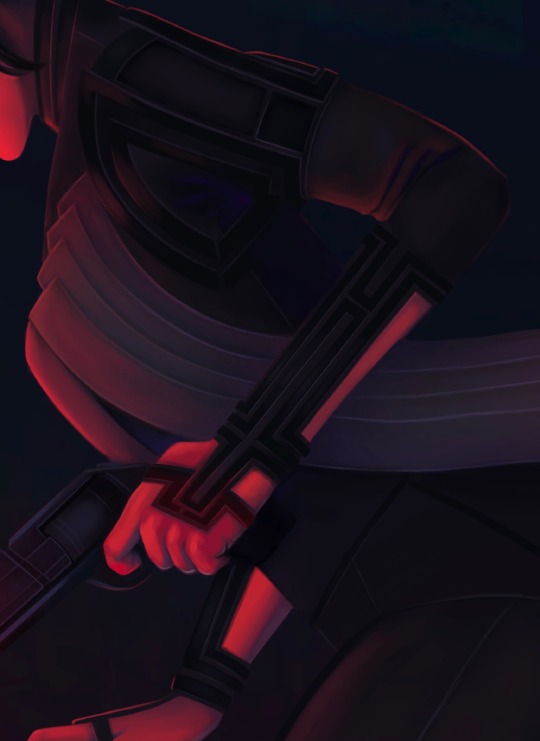
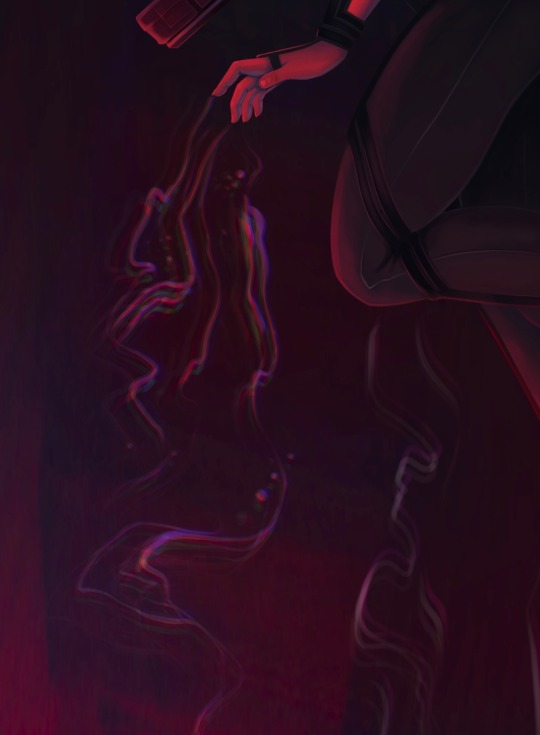
#control#control game#Jesse faden#the board#the oldest house#dylan faden#control photo mode#art by hawkmothmoon
184 notes
·
View notes
Text

SERVICE WEAPON IN BIO
#can you tell I loved doing this#control#Jesse Faden#the board#control 2019#control remedy#remedy control#remedy entertainment#i saw these memes floating around and knew I had to do this#control meme
66 notes
·
View notes
Text

The board I drew on during this weekend's @daycarefriendpickup Magma had some frog themed art already in-progress, so I continued the trend with Sun holding a Froggy Chair.

Bonus rough sketch from Saturday (technically Sunday) when I stopped drawing for the night.
#loaf art#fnaf daycare attendant#fnaf sun#sundrop#dca fandom#froggy chair#I feel there was quite a bit of improvement between this magma drawing and the last one so hooray!#got to try out a few things I'd observed another artist do when they draw so that was exciting#wasn't sure if I should tag the froggy chair but it is there and this is technically fanart of it so....#all the little doodles folks did around my drawing really made my day/night and kept my spirits up so thanks I greatly appreciate them!#since I have no self control I returned to the board at least 3 more times after saying I was “done” to make changes :')
72 notes
·
View notes